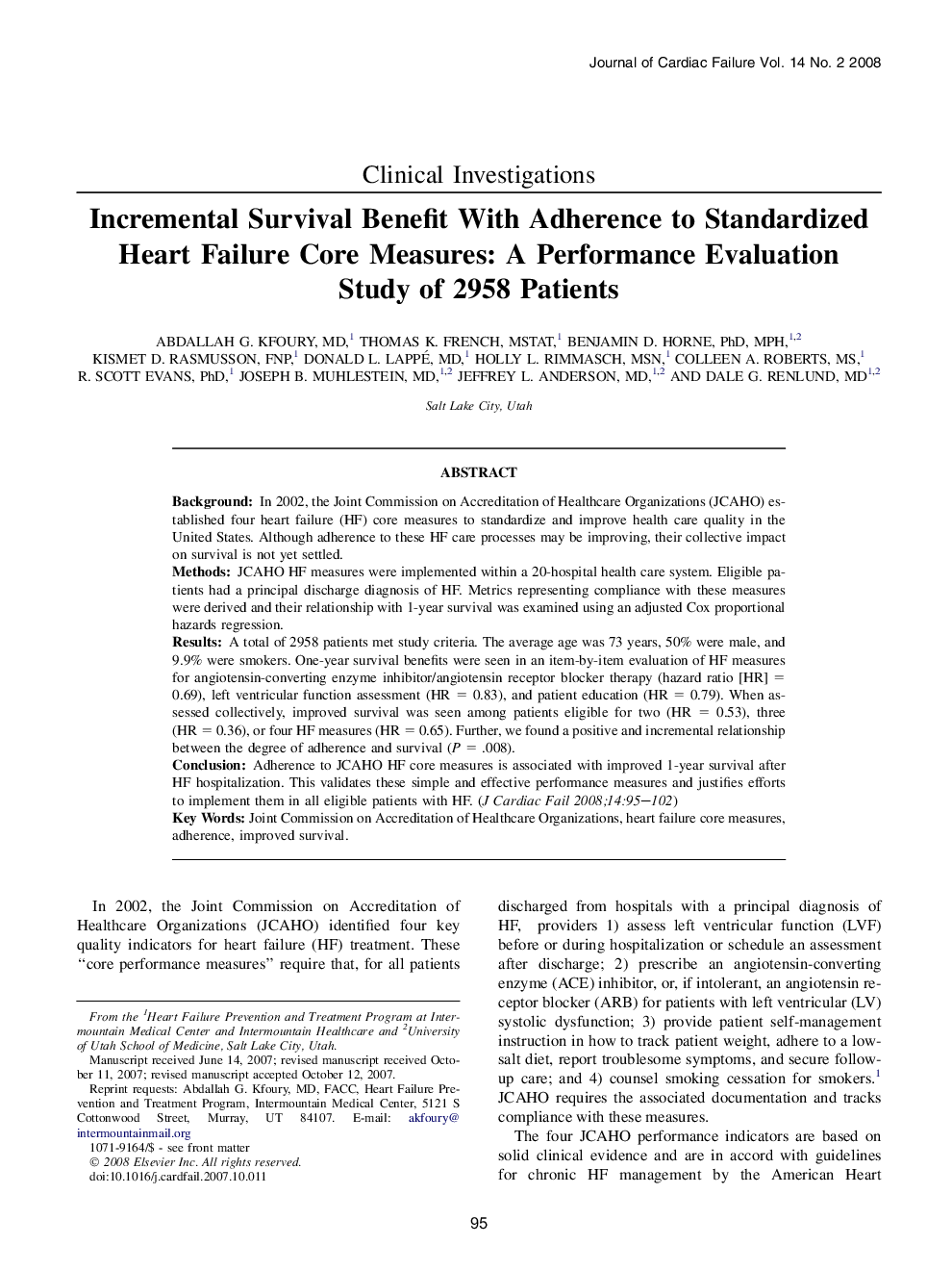| Article ID | Journal | Published Year | Pages | File Type |
|---|---|---|---|---|
| 2962277 | Journal of Cardiac Failure | 2008 | 8 Pages |
BackgroundIn 2002, the Joint Commission on Accreditation of Healthcare Organizations (JCAHO) established four heart failure (HF) core measures to standardize and improve health care quality in the United States. Although adherence to these HF care processes may be improving, their collective impact on survival is not yet settled.MethodsJCAHO HF measures were implemented within a 20-hospital health care system. Eligible patients had a principal discharge diagnosis of HF. Metrics representing compliance with these measures were derived and their relationship with 1-year survival was examined using an adjusted Cox proportional hazards regression.ResultsA total of 2958 patients met study criteria. The average age was 73 years, 50% were male, and 9.9% were smokers. One-year survival benefits were seen in an item-by-item evaluation of HF measures for angiotensin-converting enzyme inhibitor/angiotensin receptor blocker therapy (hazard ratio [HR] = 0.69), left ventricular function assessment (HR = 0.83), and patient education (HR = 0.79). When assessed collectively, improved survival was seen among patients eligible for two (HR = 0.53), three (HR = 0.36), or four HF measures (HR = 0.65). Further, we found a positive and incremental relationship between the degree of adherence and survival (P = .008).ConclusionAdherence to JCAHO HF core measures is associated with improved 1-year survival after HF hospitalization. This validates these simple and effective performance measures and justifies efforts to implement them in all eligible patients with HF.
